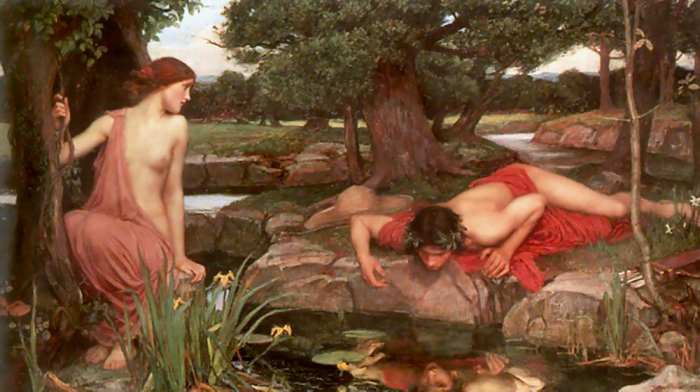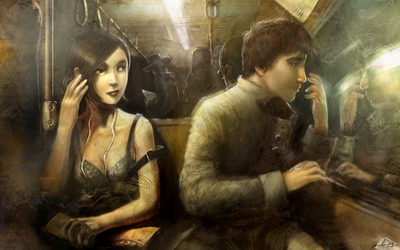
John William Waterhouse, Echo and Narcissus (1903)
1. Choose from among the characters we met in Ovid's Metamorphoses one that you find especially intriguing and/or perhaps somehow identify with. Writing in that character's voice, describe and analyze your situation now that you have been metamorphosized. For example, why are/why aren't you better off, more/less happy, etc., in your new state of being? Was your transformation just/fair? If you regret your newly transformed state and could go back in time before it happened, what would you do differently to avoid being metamorphosized?
2. What do you think would make the most compelling final scene of Lucan's Civil War? Be sure to provide a rationale, based on the 9+ books of the epic that remain, for the ending you imagine. What thematic and/or aesthetic aspects of the entire epic and the character(s) involved in the ending would you highlight, and with what intended effect(s)?
3. Lucretius's On the Nature of Things features a powerfully stark ending with resonances for the entire Epicurean epic. Compare the ending of a film (preferably one with epic qualities) featuring a similarly powerful finale with Lucretius's closing plague account. How, as is the case for Lucretius's epic ending, does the film's closure encourage viewers to reflect deeply on the film's overall themes, ideological concerns, central ideas, etc.?
4. Compare and contrast the character of Jupiter in Ovid's Metamophoses and Vergil's Aeneid. How does each poet represent the god similarly and/or differently? What general picture of the god do you get as a reader (in, for example, aspects such as power, ethics, justice, leadership, dignity, etc.)?
5. Write a diary/journal entry for a minor character (and so not Caesar or Pompey or Cato) in Lucan's Civil War describing and analyzing what you imagine to be their reactions to the events they experience in the epic.
6. Describe and analyze how you would film a particular myth of Ovid's Metamorphoses that we read for an audience today. What thematic or aesthetic aspects of the scene and/or aspects of its characters would you want to highlight, and what cinematic techniques would you use to accomplish your aims? What special adaptations would you make for a modern audience?7. Below are two images based on Ovid's account of Narcissus and Echo (Metamorphoses 3.339-510). Choose one of the images (not both) and discuss how it illustrates the Ovidian story it represents. What specific advantages and/or disadvantages does the visual image have in representing a written narrative such as Ovid's? What fresh interpretation(s) does your image offer of its Ovidian subject matter? Does the image you are analyzing provide you with any new insights into Ovid’s story?

John William Waterhouse, Echo and Narcissus (1903)

David Revoy, Narcissus and Echo (2005)